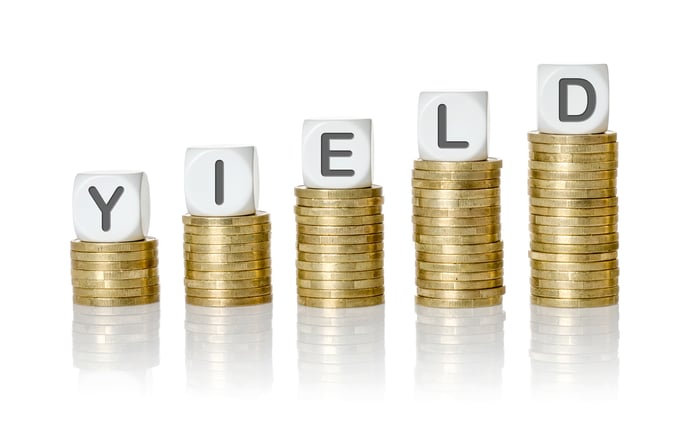COVID-19 clobbered dividend investors this year as hundreds of companies slashed and suspended their payouts to preserve cash during the pandemic. That cut into the cash flows of most income investors while also leaving them with fewer options to help pick up the slack.
However, not all dividend stocks have faced that fate as several payouts proved their resiliency this year, including many with above-average yields. At more than 4%, the payouts of infrastructure giant Brookfield Infrastructure (BIP -0.09%) (BIPC), REIT Realty Income (O 2.58%), and pipeline operator TC Energy (TRP 2.43%) stand out. Not only are they more than double the S&P 500's average of 1.7%, but they're also on firm financial foundations.

Image source: Getty Images.
Stability amid the storm
Brookfield Infrastructure's cash flow barely budged during the turbulent second quarter. Overall, it generated $333 million in FFO, which was only $4 million below the prior period. That's primarily because of foreign exchange fluctuations in Brazil, which impacted FFO by $30 million. Strip away that impact, and FFO would have risen.
Because of that solid showing, Brookfield generated more than enough cash to cover its 4.1%-yielding dividend. Meanwhile, it used its strong, investment-grade balance sheet to continue making investments to fuel future growth by investing $600 million to buy some telecom towers in India. When combined with its organic growth drivers, and acquisition pipeline, Brookfield fully expects to have the fuel to grow its already above-average dividend at a 5% to 9% annual rate for the next several years.
A model of dividend durability
Realty Income also delivered solid results despite the turbulence during the second quarter. Overall, the retail-focused landlord collected 87.8% of the rent it billed during that period, which improved to more than 90% in July and August. That allowed it to keep its dividend payout ratio to a reasonably conservative 81.5% of its adjusted FFO during the period.
Meanwhile, with rental collection rates improving, and Realty Income boasting one of the best balance sheets in the REIT sector, it has all the confidence in the world in its 4.6%-yielding dividend. Because of that, the company recently increased its payout for the 108th straight quarter. That upward trend seems poised to continue because its top-tier balance sheet gives it the flexibility to keep buying cash-flowing properties.
Plenty of fuel left in the tank
TC Energy's second-quarter results were also fairly solid despite all the turbulence in the energy market. While its cash flow did dip slightly, it was mainly because of asset sales to bolster its balance sheet and finance expansion projects. Overall, TC Energy has one of the top financial profiles in the pipeline sector thanks to its A-rated credit and a conservative 40% payout ratio. Those factors put its 5.2%-yielding dividend on one of the most sustainable footings in the industry.
Meanwhile, the company's top-notch financial profile gives it the flexibility to continue investing in high-return expansion projects. Because of that, TC Energy believes it has enough power to increase its dividend by another 8% to 10% next year and expand it at a 5% to 7% yearly pace beyond 2021. While pipeline projects are a major driver of that forecast, TC Energy will likely pivot more toward the power market in the future to keep growing. It already has a life extension project at its nuclear power plant under way and will likely pursue energy storage and renewable energy opportunities in the future. Because of that, the company's already above-average dividend should have plenty of power to keep growing.
High-quality income streams
While 2020 has been tough on income investors, this year's turbulence has also pointed a bright spotlight on companies with highly resilient dividends. That definitely describes Brookfield Infrastructure, Realty Income, and TC Energy, which have all maintained their payouts thanks to their durable cash flows and top-notch balance sheets. Because of that, they should suit the needs of investors looking for sustainable high yields.





